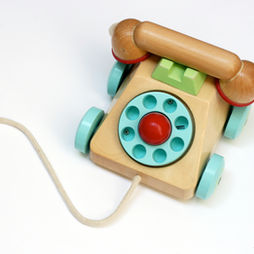About Lindsey

I earned my Master’s Degree in Clinical Social Work from Rutgers University in 2014, focusing on Violence Against Women and Children and Childhood Separation and Loss. I also completed an Adoption and Foster Care Certificate Program through Rutgers University, and am currently enrolled in the Integrative Somatic Trauma Therapy Program through Embody Lab, deepening my understanding of both family/intergenerational dynamics and how trauma and stress operate within the body.
Over the years, I’ve worked as an in-home play therapist, an outpatient child and adolescent therapist, and a school-based social worker for children with serious emotional and mental health needs.
I also have been diagnosed with ADHD, Combined Type, and Dyscalculia, giving me personal insight into neurodivergence and how to best support families and children experiencing similar diagnoses.
My approach is holistic, grounded in mindfulness, authenticity, and attachment theory. I incorporate psychoeducation on the brain and nervous system, drawing on Relational Neuroscience and Polyvagal Theory. I am fully trained as a Synergetic Play Therapist™. I am also highly influenced by Child Centered Play Therapy, Emotionally Focused Family Therapy and Attachment Centered Play Therapy.
I primarily work with children ages 3-12, helping them overcome challenges related to:
-
Anxiety and OCD
-
Depression
-
Grief and loss
-
Aggression
-
Trauma
-
Adoption, foster care and kinship care
-
Divorce and separation
-
ADHD, Autism, Pathological Demand Avoidance (PDA) and other neurodivergence
-
Sensory Processing
-
Medical trauma
-
Relational attachment wounds
-
Self esteem
-
Suicidality and self-harm
-
Other additional life stressors
I have experience working with all kinds of families including biological, foster, kinship, adoptive, separated/divorced, blended, same sex and multigenerational.
Originally from Central New Jersey, I've called Denver home for the last decade where I live with my husband, two children (one of which experiences sensory challenges) and our cat, Figaro. I love to garden and spend quality time with friends and family.
One of my favorite sayings is “progress, not perfection.”

About Play Therapy

Play is the natural language of children, and if viewed through the right lens, it can teach us so much about a child’s world.
There are many benefits to play that have been widely accepted by a variety of organizations, such as the American Association for Pediatrics, the National Association for the Education of Young Children, and the Association for Play Therapy. Play is instrumental for development - allowing children to develop autonomy, empathy, self-regulation, and social skills. Play relieves stress, helps us learn and connect, develops brain function, helps release intense emotions, and brings joy and energy to our lives.
In play therapy, children are able to use play to express and process difficult, challenging, or traumatic experiences. Since children are often unable to explain or verbally talk about their struggles, they can use their natural language of play to show me, the therapist, how they are viewing these challenges in their lives.
Through their play, children might indicate feelings of sadness, frustration, loss, anger, or fear while I respond by helping them feel seen, heard, understood, and accepted.
As their play therapy process evolves, they will learn and practice healthier, more effective ways to deal with their perceived challenges. As they practice these skills, they begin to integrate new patterns of behavior and new ways of relating to themselves and others that carry over into their lives outside of the play therapy process as they continue to navigate life’s challenges. Play therapy promotes healing and growth by addressing a wide range of issues commonly experienced by children, fostering resilience and self-confidence.
In my work with children, I use Synergetic Play Therapy™, a research-informed model of play therapy combining the therapeutic powers of play with nervous-system regulation, interpersonal neurobiology, physics, attachment, mindfulness, and therapist authenticity. This model of play therapy helps rewire the lowest regions of the brain and supports children in finding new ways to respond to stress and challenges in their lives. My work is also highly influenced by Child Centered Play Therapy, Emotionally Focused Family Therapy and Attachment Centered Play Therapy. I am constantly looking to learn new techniques and strategies and expand my understanding of child development.
You, as the parent or guardian, know your child best, so I strive to work closely with you to create meaningful goals and monitor your child’s progress. Although every child is unique, my goals for your child might include developing healthy coping skills, regulation techniques, and healthy social interactions at home and at school. I seek to create a safe, non-judgmental, non-intrusive atmosphere for children to truly express their emotions and desires.
Sessions with the child typically last 40 minutes and may include a parent when deemed therapeutically appropriate. A 10-minute parent check-in usually follows immediately after the session, unless extenuating circumstances arise, in which case these will be discussed and addressed.
About Parent Coaching
and Support

Parenting is hard! Admitting that things aren’t working or that you need additional support is tremendously brave.
The majority of us did not receive co-regulation or emotional support as children, which means that learning how to do this while also offering it to your children at the same time is extremely challenging. Learning any new skill is hard. I often tell parents I work with that the fact that you are worried about being a good parent means that you already are one.
Parent engagement and willingness to try new things is pivotal in the play therapy process with your child.
I offer ongoing parent and caregiver coaching throughout the parenting and/or play therapy process. The level of support is determined in collaboration between us and personalized to each family. Coaching is provided immediately following each session and can be given in person or over the phone. The level of support can always be adjusted or shifted. In addition to the 10-minute check in immediately following child session, I also can provide 1:1 support, either virtually or in person.
I also provide a deep understanding of what feelings and challenges are being processed and explored in the playroom and then discuss various responses or techniques to be implemented for that week.
Some common topics that come up include:
-
Nervous system regulation
-
The different parts of the brain and their functions
-
Polyvagal Theory (the Science of Safety)
-
Modeling and teaching co-regulation
-
Reframing negative behaviors
-
Emotional repairs
-
Setting developmentally appropriate expectations
-
Improved communication skills
-
Healthy boundaries
-
Inner child healing from your childhood
-
Relationship rituals with your child
-
Self-care
-
Mindfulness techniques
-
Issues related to divorce and co-parenting and many other topics.
You are the expert on your family! If you are interested in learning more about this process, please contact me.
Rates and Insurance

My rate is $155 per 50 minute session, including all intake sessions, child sessions and parent coaching sessions.
I accept all credit cards and FSA/HSA cards.
I am private pay only currently. There are limited reduced rate sessions - please discuss this further with me if you are interested.
I work with families to submit superbills/CMS 1500 forms to insurance companies to determine whether any out of network benefits exist. Please notify me in the intake if this is something you are interested in.
Questions to ask your insurance provider when determining out-of-network benefits
1. Does my policy cover out-of-network services provided by a Licensed Clinical Social Worker (LCSW)? My provider is located in Colorado.
2. What documentation is required to determine medical necessity for reimbursement? I will be paying for services at the time of service, and the provider will then provide a superbill that will include the date of service, the CPT code, the location, and the diagnosis code.
3. What CPT codes are covered? These are codes that the time and type of service.
4. Are there any diagnoses that are not eligible for reimbursement?
5. How many sessions are covered per year?
6. Is there a lifetime maximum on benefit?
7. What is my out-of-network deductible and when does that restart (enrollment year or calendar year)?
8. What percentage of the session fee is eligible for out-of-network reimbursement?
9. What is the payment schedule or turnaround time from claim received to payment sent?
10. What is the number for claims if a claim is denied?











